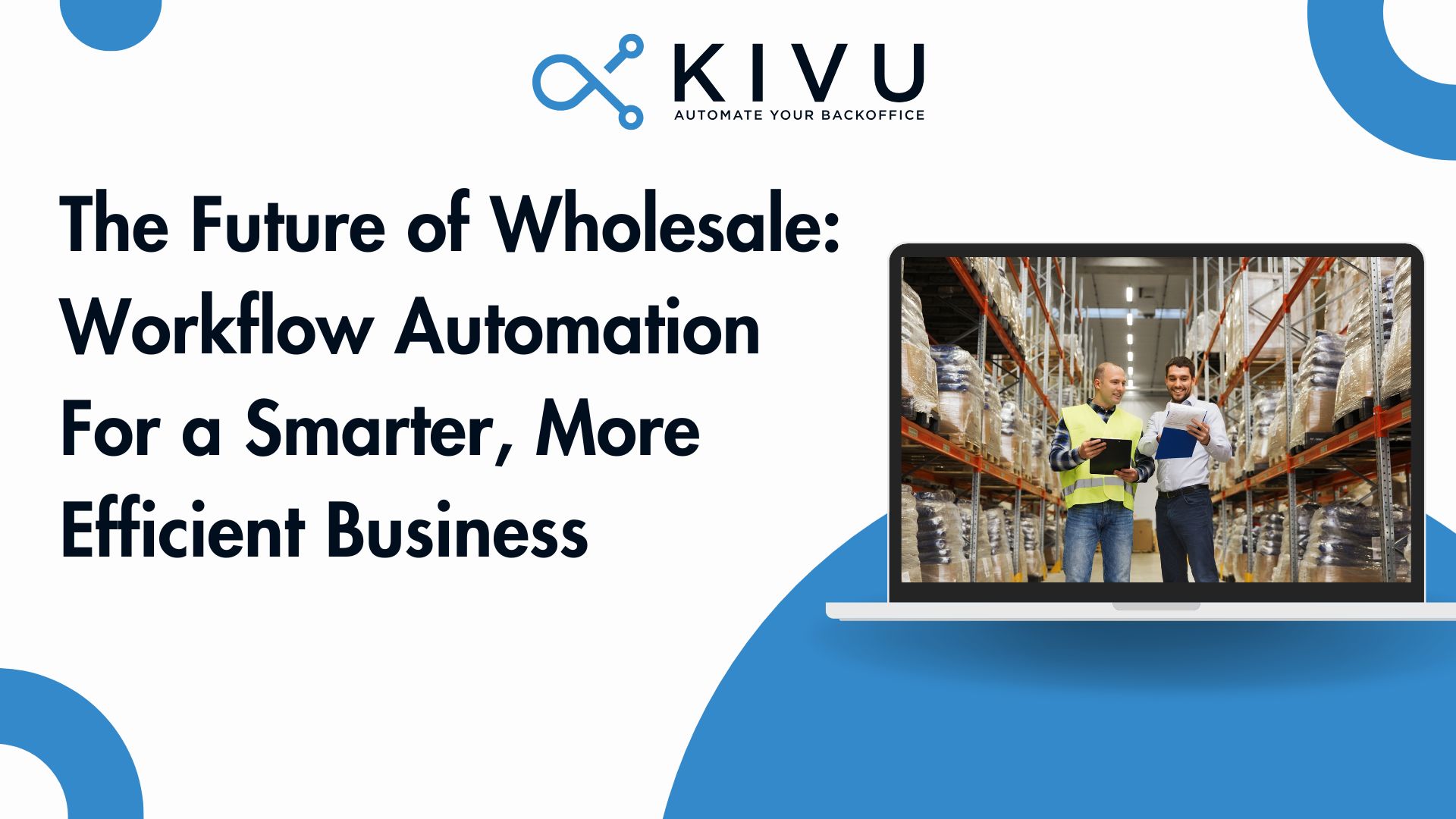The Future of Wholesale: Embracing Workflow Automation for a Smarter, More Efficient Business

As the wholesale industry evolves, companies are facing increasing pressure to streamline operations, reduce costs, and stay competitive in a fast-paced, technology-driven environment. One of the most significant opportunities for growth and efficiency lies in the adoption of workflow automation tools. In 2025, wholesale businesses that embrace automation will be better equipped to meet the demands of the modern market, enhance productivity, and future-proof their operations. This article explores the benefits of Accounts Payable (AP) automation, Travel & Expense (T&E) management, and other practices that wholesale companies can implement to remain agile and profitable in the years ahead.
1. Accounts Payable (AP) Automation: Speed, Accuracy, and Cost Savings
Accounts payable processes have traditionally been manual, time-consuming, and prone to errors. For wholesale businesses managing a large volume of invoices from suppliers and vendors, inefficiencies in AP can quickly add up to significant financial and operational headaches. By automating AP workflows, wholesale companies can:
- Reduce Manual Errors: With automation, invoices are processed and matched to purchase orders and receipts in real time, ensuring accuracy and minimizing costly mistakes.
- Speed Up Payments: AP automation accelerates the payment process, allowing for faster approval cycles and timely payments, which can improve supplier relationships and unlock early payment discounts.
- Free Up Resources: Automation reduces the need for manual intervention, allowing accounting teams to focus on more strategic tasks like financial analysis and forecasting.
- Improve Compliance and Audit Trails: Automated systems provide an auditable record of all transactions, making it easier for businesses to comply with regulations and pass internal or external audits.
Wholesale companies that adopt AP automation in 2025 will find themselves with a more efficient, scalable process that not only reduces operational costs but also strengthens their financial control.
2. Travel & Expense (T&E) Management: Streamlining Employee Expenses
For wholesalers with sales teams, managers, or executives frequently traveling, managing travel and expenses (T&E) can become a logistical and financial challenge. Inconsistent reporting, lack of visibility into spending, and manual expense approval processes can lead to inefficiencies and compliance risks. T&E management automation can address these challenges by:
- Simplifying Expense Reporting: Employees can submit expenses directly through automated systems, using receipt capture tools and integrating with company policies for real-time approval. This reduces errors, fraud risks, and the back-and-forth between finance and employees.
- Increasing Visibility: Automation tools allow finance teams to track and analyze T&E spending in real-time, providing insights into budgeting, spending patterns, and areas for cost-cutting.
- Enforcing Policy Compliance: Automated T&E systems can be programmed with company policies to flag non-compliant expenses before they are approved, ensuring consistency and adherence to budget guidelines.
- Boosting Employee Productivity: When employees no longer need to spend time manually filling out expense reports or chasing approvals, they can focus on their core responsibilities—ultimately driving greater business value.
With the right T&E automation solution, wholesale companies can save time, reduce manual work, and gain more control over business travel expenditures in 2025.
3. Inventory and Order Management: Real-Time Insights and Efficiency
One of the most critical aspects of wholesale operations is inventory management. Automated inventory and order management systems help businesses monitor stock levels, track demand, and optimize replenishment schedules—all in real-time. The benefits of automation in this area include:
- Accurate Stock Tracking: Automation provides real-time updates on stock levels, helping businesses avoid stockouts, overstocks, and unnecessary holding costs.
- Improved Forecasting: Automated systems can analyze historical data and market trends to forecast demand more accurately, allowing wholesalers to plan purchases and production schedules more efficiently.
- Faster Order Fulfillment: Automation ensures orders are processed quickly and accurately, which can improve delivery times, and customer satisfaction, and reduce the risk of errors.
Wholesale companies that invest in automated inventory and order management systems can ensure they are delivering products to customers faster, with fewer errors, and at lower operational costs.
4. Customer Relationship Management (CRM) Automation: Enhancing Sales and Support
Wholesale businesses need to build strong, long-lasting relationships with customers, but managing those relationships manually can become overwhelming. CRM automation allows companies to track customer interactions, identify sales opportunities, and manage support requests in a more streamlined way. Key benefits include:
- Personalized Customer Interactions: Automated CRM systems can segment customers based on preferences, purchase history, and other factors, allowing wholesalers to tailor their communication and marketing efforts.
- Improved Customer Service: Automated workflows can quickly route customer inquiries to the appropriate team, ensuring timely and efficient resolution of issues.
- Data-Driven Insights: With CRM automation, businesses gain access to real-time analytics on customer behavior, sales trends, and potential opportunities, which can help inform business strategy.
By leveraging CRM automation, wholesale companies can foster stronger relationships with their clients, improve sales productivity, and enhance their reputation as reliable and responsive partners.
The Path Forward: Investing in the Future
As wholesale businesses look toward 2025 and beyond, the adoption of workflow automation will be a key driver of success. Companies that implement solutions like AP automation, T&E management, and integrated workflows will improve operational efficiency and position themselves to compete more effectively in an increasingly digital world.
The future of wholesale is about working smarter, not harder. Automation will enable businesses to achieve greater speed, accuracy, and cost savings, all while providing the flexibility to adapt to changing market conditions. By investing in automation today, wholesale companies will be better prepared for the opportunities and challenges that lie ahead.
Are you ready to embrace the future of wholesale? The time to automate is now.
Learn more about automating your back office at kivuexpense.com/landing-page